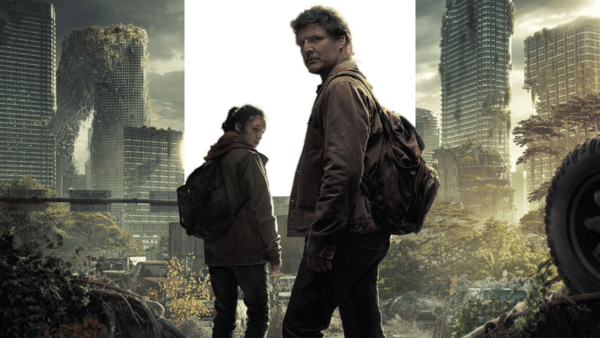Newsletter | From The Sopranos To Succession, How HBO Brings Death To Life
Succession’s big twist is par for the course in HBO’s exemplary, and at times inspired, use of the inevitable, writes Manik Sharma.

Last Updated: 12.15 PM, Apr 16, 2023
This column was originally published as part of our newsletter Stream Of Consciousness on April 16, 2023. Subscribe here. (We're awesome about not spamming your inbox!)
***
AND JUST LIKE THAT, TV’s most nefarious, foul-mouthed and unscrupulous grandpa was ushered towards the light. Now, in its final season, Succession can finally address the question its title has always teased: Who will succeed Logan Roy? Strangely, no one saw Roy’s death coming, even though the show has always been an exercise in constructing the route for his spiritual and bodily exit. When it finally did, his death was framed through the eyes of his bitter, rebellious offspring — all of them in denial, along with millions who couldn’t (or probably didn’t want to) see that twist coming.
It’s simply the latest iconic moment that has — unsurprisingly — sprung from death, as opposed to life. No other studio has possibly played with the idea of death — the many shapes, sizes and timings it comes in — than HBO. Succession’s big twist is par for the course in the studio’s exemplary, and at times inspired, use of the inevitable.

Stories, even if they are finite in dimension, ought to be eternal in essence. It’s why we re-watch them, cry at familiar endings and well up over things we have emotionally traced before. It also explains why death surprises us, even though it has our reality bound from all sides. We’ve seen it, sensed it, and in a post-pandemic generation, even experienced it to an extent. And yet, the death of a fictional character can feel like a punch to the gut. It demolishes our euphoric submission to a world without misery, pain, and for the longest time, death. It’s precisely where HBO has and continues to alter the landscape of storytelling.
Tony Soprano’s death at the end of The Sopranos has been debated for years. You can possibly make peace with losing a character at the end of a show, but it’s another thing to get rid of beloved characters before you even begin to identify with them, unpeel their layers, or read obsessively into them. Game of Thrones set the precarious precedent for mercilessly culling threads and characters en masse. Each season — each episode of the show, in fact — turned into a nervous exercise in “character death bingo”, speculating which favourite would be the next to go. It’s probably part of the grisly appeal of a series where death was as ecstatically abrupt as life was unapologetically amoral.

Much like The Sopranos, HBO’s Veep too didn’t make much ado over packing Selina Meyer (Julia Louis-Dreyfus) into a coffin and even scattering a pun or two at her expense, post-mortem. Contrast that with The White Lotus, where everyone walks and talks with the spectre of death hanging over their gloriously tanned heads. Both the tragedy and the comedy of the show borrow from the bickering, entitled reprisals of morality; for at least one of the characters, it all amounts to nothing. It’s like watching people casually brush past death, unintentionally supplying humour to the darkness that has already begun to swallow them. The survivors don’t necessarily end up any better either — possibly the contorted yet prophetic message behind the series.
Then there is The Last of Us, HBO’s latest masterpiece, whose chief provocation is the sundry dismissal of pretty much every character you are introduced to. Almost everyone (or at least someone) dies in each episode, asking you to brace not for the awe of having loved them, but the shock of caring for them still. For a show about survival, amidst all the apocalyptic dreariness that goes with the landscape, it’s incredible how death is both life-affirming, relaxing and akin to salvation. Human nature not only corrupts the idea of our collective future, it possibly also sabotages the seemingly equal chance of everyone getting there. Who is then the saviour? And who or what exactly is worth saving?

In Succession, HBO has reintroduced — if not reinvented — the wheel. Logan Roy’s final moments are barely filmed, his last words — tellingly — nowhere close to being as loud or brash as his most iconic dialogues. It’s probably the closest the studio has come to introducing death, not as the pivot or the culmination, but as the starting point of our detachment from a beloved story. From here on in, Succession — even if it crashes a plane-full of the Roys or plots humiliating homicidal twists for a couple — won’t draw the kind of disbelief like it already has with Logan’s end.
Succession let go its most ferocious beast, right when he felt indestructible. Life is comedic that way; its punchlines cut across reputation and projections. On The Last of Us, people died episodically… as if set to the rhythm of a reminder that even in a world where you must fight to survive, a good death might be your sole lasting (and last) sense of a good life. The final season of the exceptional Barry is next. It’s impossible not to assume that someone’s not going to make it.

 Premium
Premium